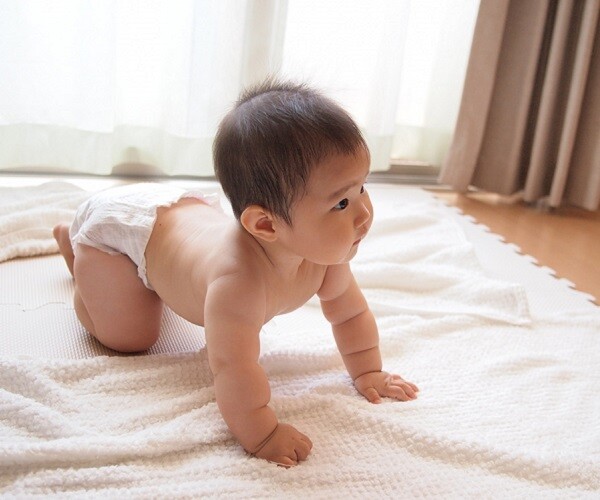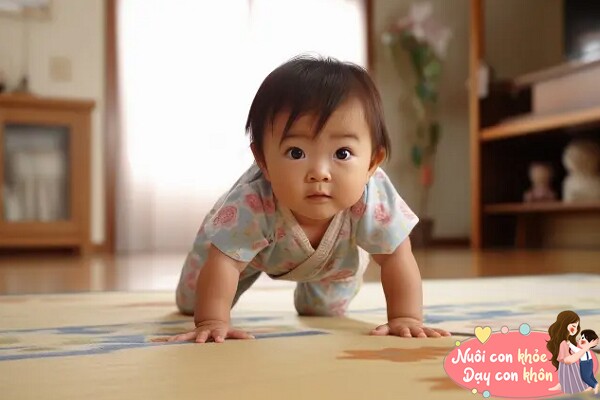Crawling is an essential activity for infants, and it is controlled by their developing brains. During this process, children not only strengthen their muscles but also stimulate the development of their fine and gross motor skills.
Crawling enables children to explore their surroundings, facilitating object recognition, and analysis of shapes and colors. These activities enhance the connections between neurons in the brain, promoting intelligence and future learning capabilities. Specifically, there are three key benefits to children who crawl well.


Brain Development Boost
As mentioned, crawling is more than just a physical movement; it is a complex process governed by the brain. When infants crawl, their brains send signals to their limbs, helping them coordinate and move faster.
This coordination is vital for the development of fine and gross motor skills and also contributes to emotional development as children explore their surroundings.
Additionally, crawling stimulates cognitive development. As children move, their brains actively process information from the environment, forming new neural connections.
Infant brains are incredibly flexible and dynamic, constantly adapting and growing through experiences. Physical activities like crawling expand their cognitive abilities, enhance memory, and improve focus and concentration.
If infants are not encouraged to crawl or show disinterest in the activity, their natural brain development may be hindered, lacking the rich motor experiences that come with crawling.

Boosting Brain Development.

Enhanced Cognition
Crawling at home, with varying directions and viewpoints, improves cognition and basic motor skills. With each crawl through nooks and crannies, children not only explore their surroundings but also learn to locate themselves within their environment. This natural curiosity expands their knowledge and cognitive abilities.
Once infants start crawling, their exploration capabilities increase significantly. They can access and experience new things, from indoor toys to outdoor objects, that were previously out of reach. These encounters introduce concepts like distance, size, and shape.

Enhanced Cognition.
Beyond indoor exploration, outdoor crawling offers children a chance to connect with nature. They can feel the soft grass beneath their hands, listen to birds singing, and observe various animals. These experiences enrich their understanding and enhance their sense of the world around them.
All these factors contribute positively to their intellectual development. Crawling encourages children to be active and interact with their environment, leading to more efficient brain functioning.
Indeed, these early motor milestones are crucial as they lay the foundation for cognitive and emotional development throughout life.

Encouraging Exploration and Discovery
Crawling stimulates infants’ curiosity and desire to explore, from familiar indoor objects to unfamiliar outdoor sounds and sights. Through touch, sight, and interaction with their surroundings, they begin to understand space, size, and color.
Moreover, crawling supports brain development, cognition, and metabolism, leading to stronger bones and improved muscle strength. While crawling, children adjust their bodies to maintain balance, developing their motor skills and enhancing coordination between limbs.
Crawling lays the foundation for those crucial first steps. As infants become proficient crawlers, their bodies prepare for the next stage of walking.

Encouraging Exploration and Discovery.
While some parents may consider it normal for their child to “skip” crawling, as each child develops at their own pace, crawling plays a significant role in their overall development.
Experts advise that children should progress through each motor stage naturally and sequentially. Therefore, creating a safe environment and encouraging crawling is the best way to support healthy development.
In summary, crawling is not just the beginning of physical development but also an essential part of a child’s journey of discovery. Parents should be patient and allow their children to crawl freely, as it will bring numerous benefits to their future growth and development.


































